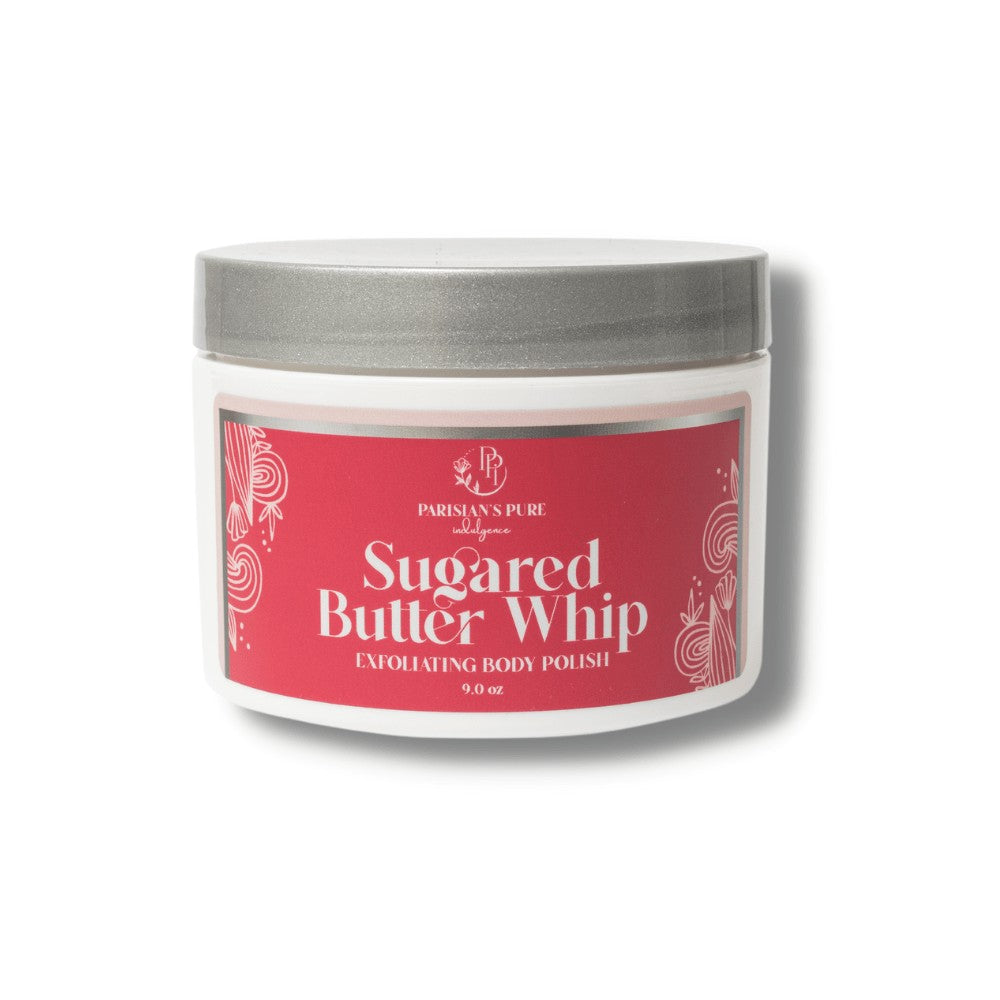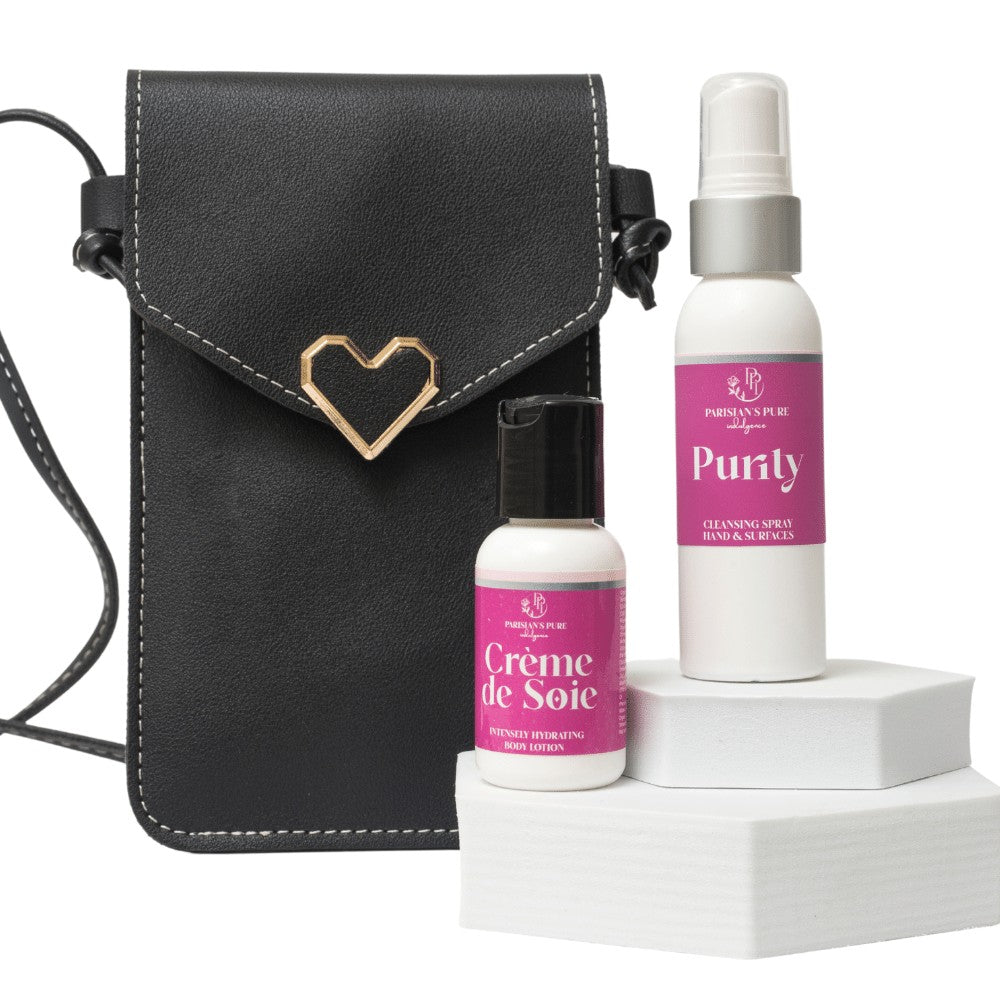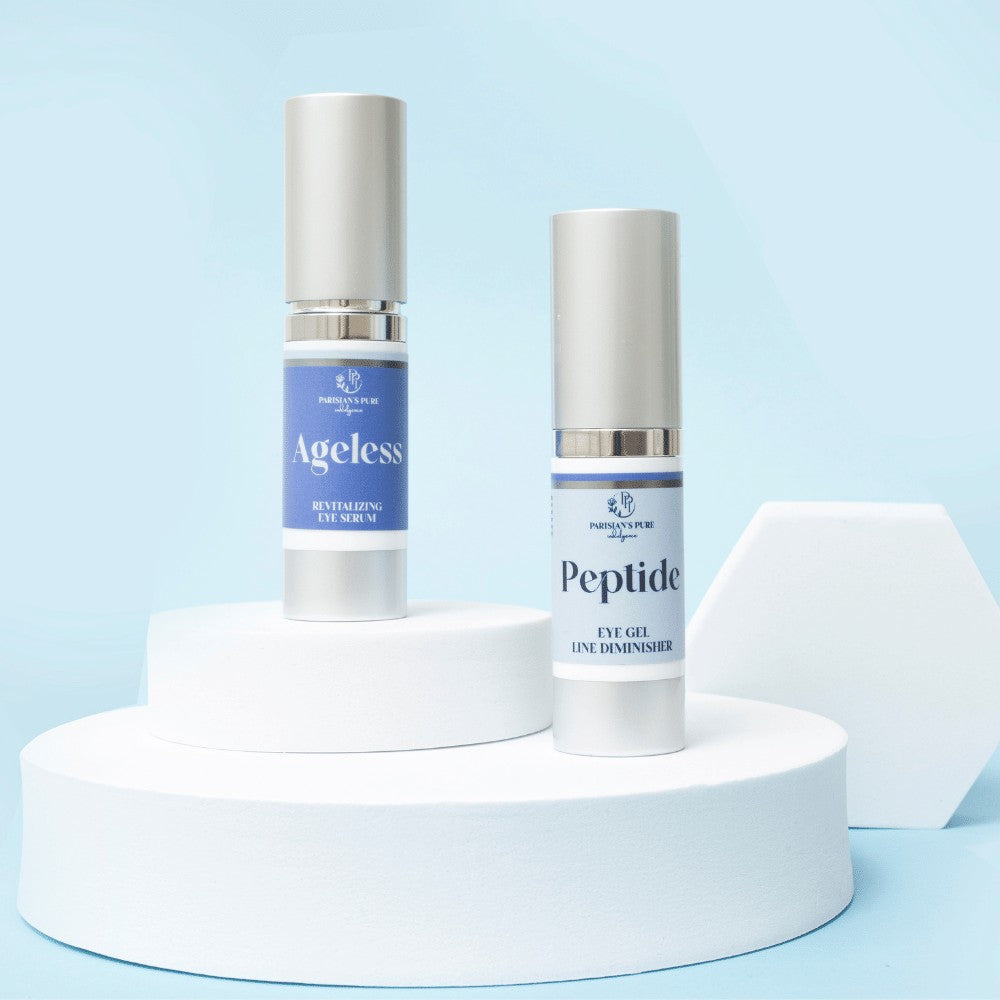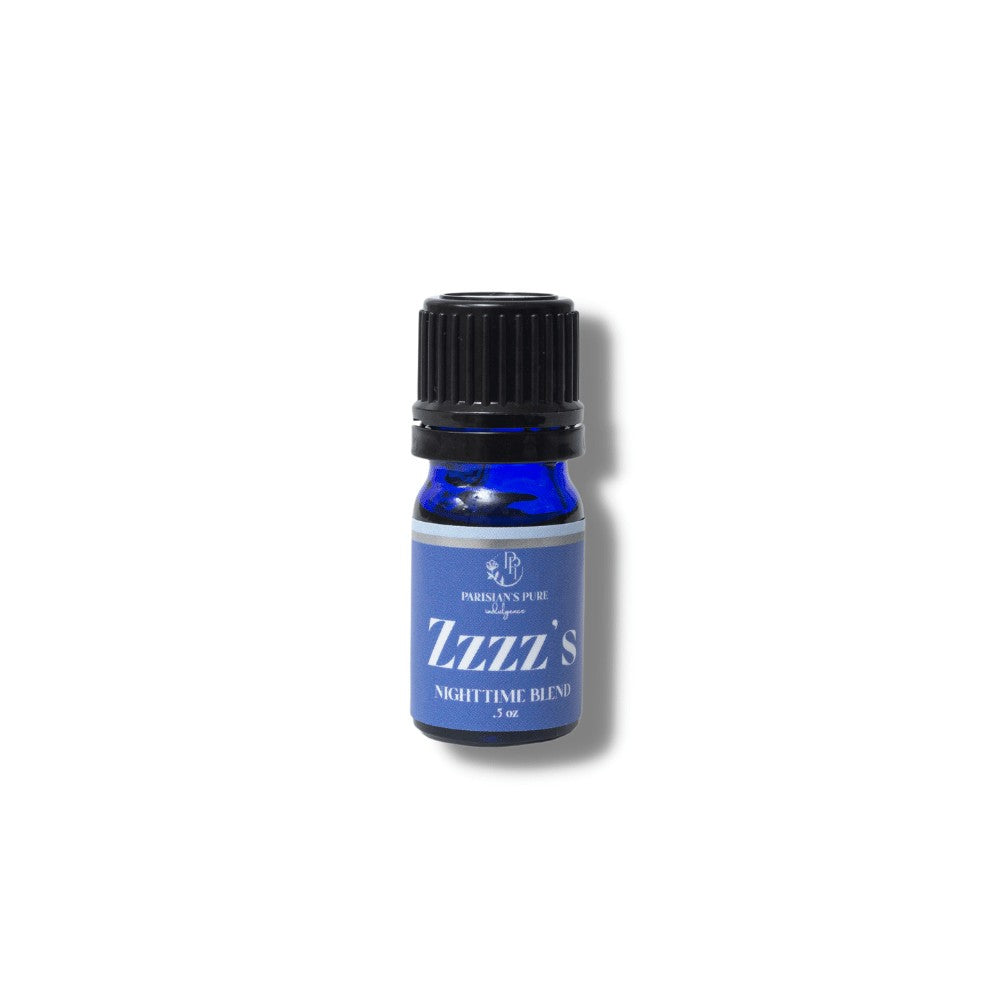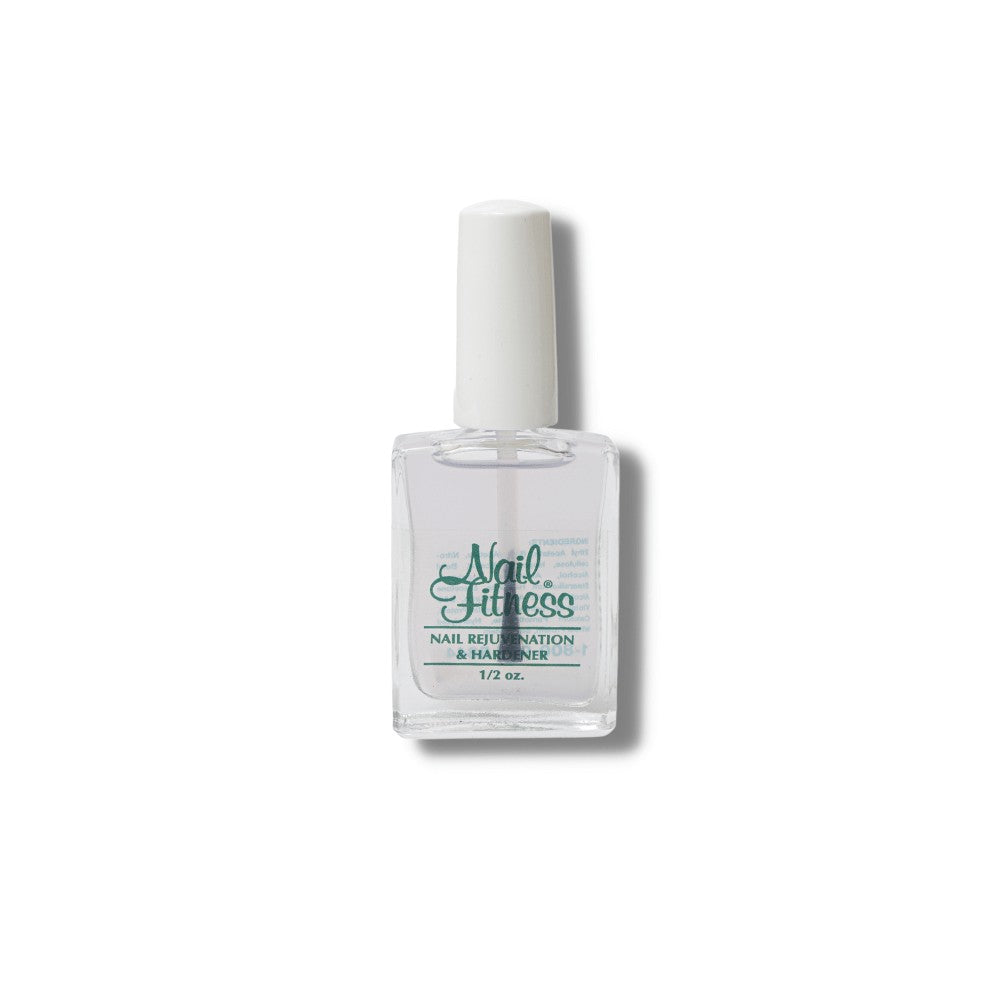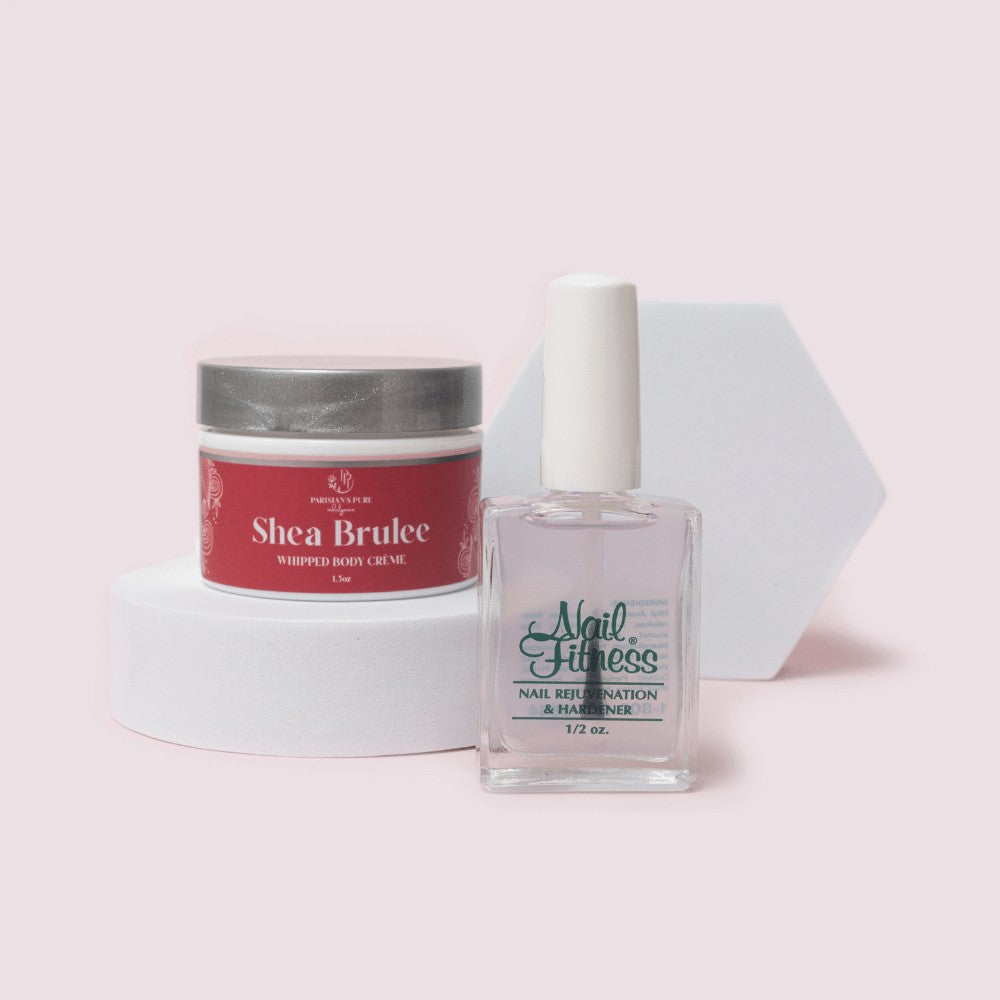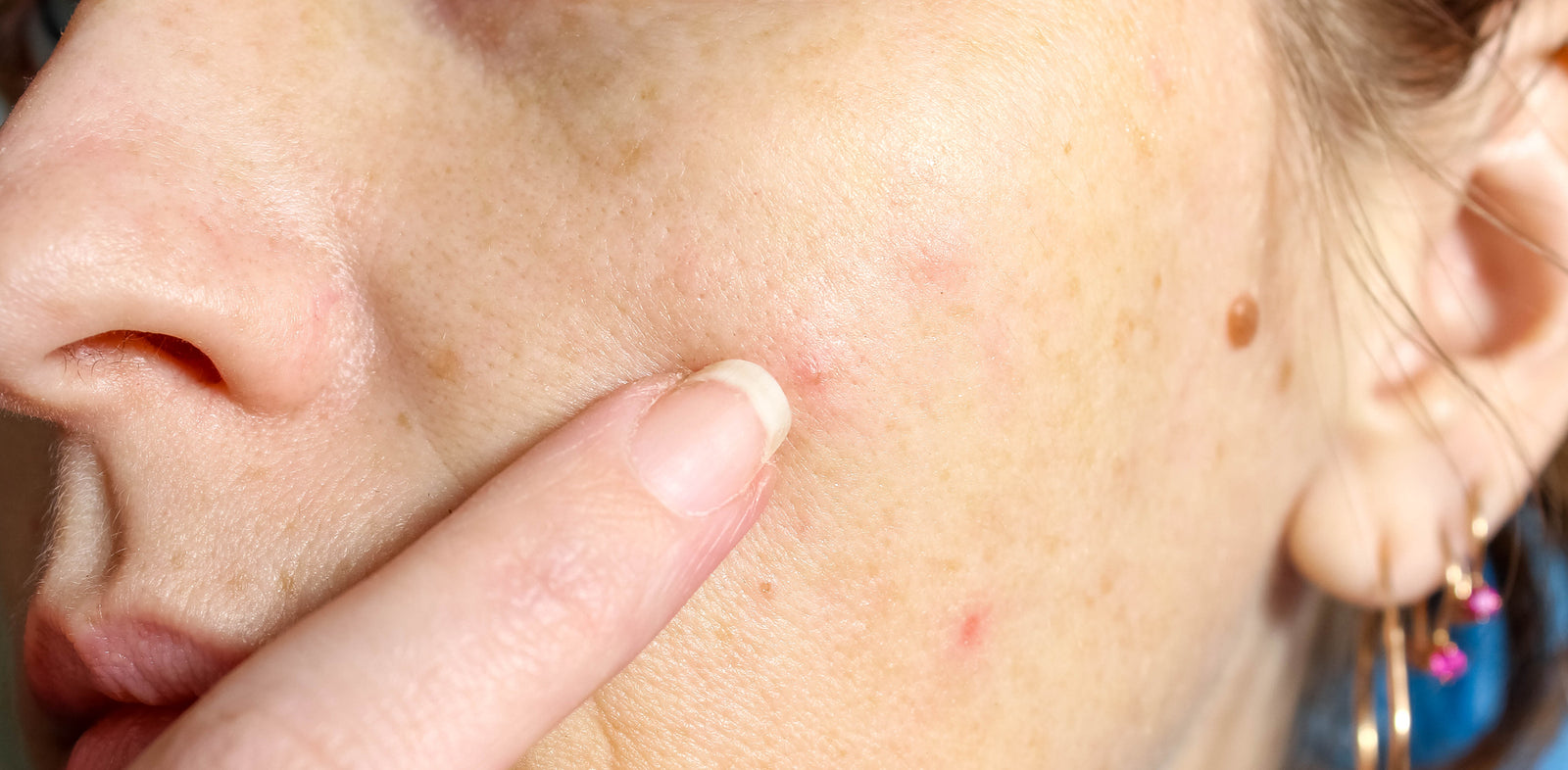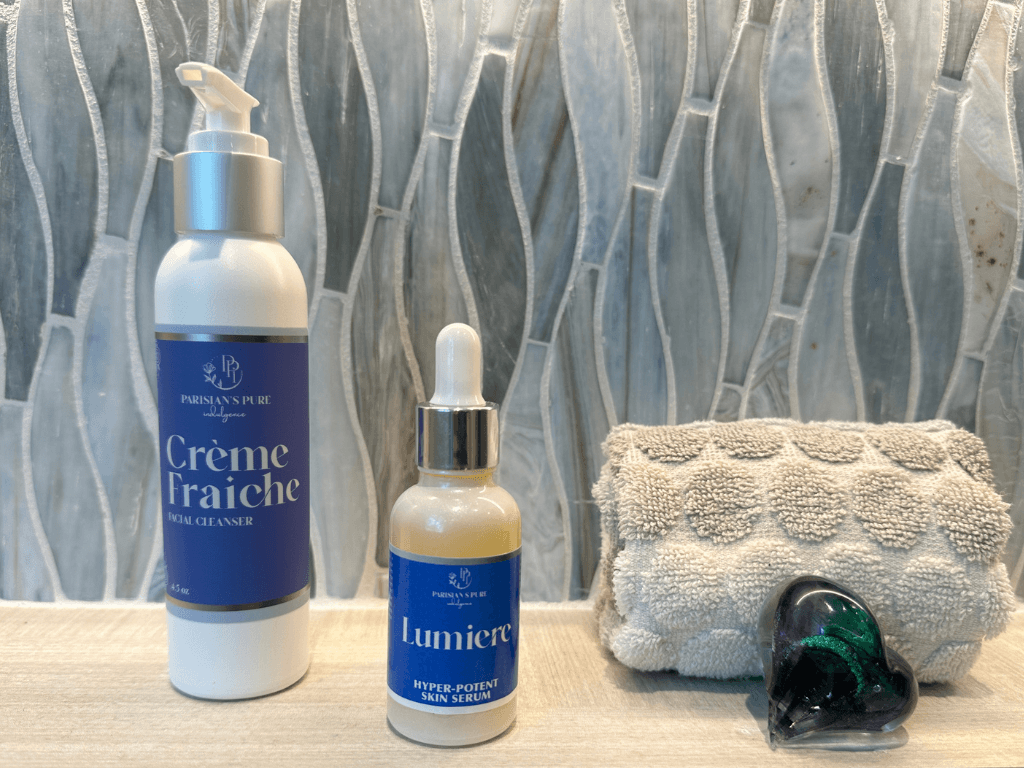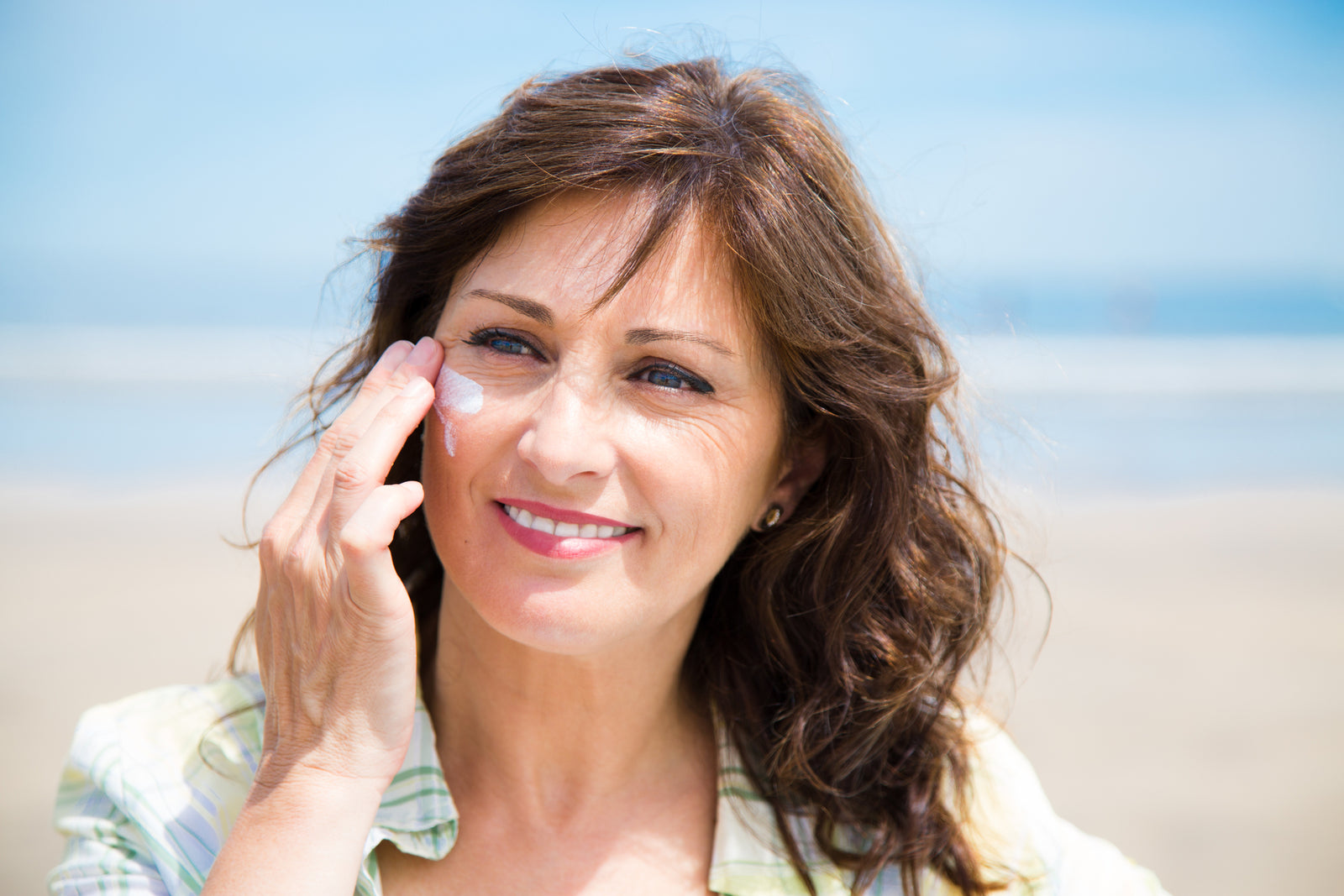Adult Acne Post 50?
I was recently asked, "What causes adult acne and why am I still getting pimples at my age?" Seems like a simple question, right? It's not. There are a number of reasons we still get breakouts post 50. Let's look at a few examples and do some myth-busting too!
The most common acne are whiteheads and blackheads --also referred to as comedones, and non-inflammatory acne. They are typically caused by trapped sebum or bacteria in our pores.
Ditch the "Dirty Skin" Myth! Cleanse, But Don't Strip.
Forget the idea that adult acne is caused by "dirty" skin. Harsh scrubbing and over-cleansing can actually make things worse by stripping your skin of its natural oils.
Here's the key: cleanse twice daily with a gentle cleanser that removes dirt and excess oil without disrupting your skin's natural balance.
This will help keep your pores clear and prevent breakouts, while also promoting faster healing of existing blemishes.
Myth Busted: Oil-Free for Clearer Skin? Not Always!
Oily skin? Fear not the moisturizer! Many people with oily, blemish-prone complexions shy away from moisturizers, especially oil-based ones. But here's the secret: oil-based moisturizers can actually help regulate your skin's natural oil production.
Think of it like this: when your skin feels stripped of moisture, it goes into overdrive producing oil to compensate. An oil-based moisturizer can help restore balance, leaving your skin feeling hydrated and less likely to become excessively oily.
Key Tip: Always cleanse and tone before moisturizing, regardless of your moisturizer type. This removes dirt, oil, and impurities that can clog pores, allowing your moisturizer to work its magic.
Skin Purging: A Sign Your New Routine is Working (Maybe a Little Too Well!)
Just started a new skincare line, especially one with organic or oil-based products, and noticed a few unexpected breakouts? Don't hit the panic button! This temporary phenomenon, called "skin purging," is actually a good sign.
Here's why: As your new routine works its magic, it can accelerate cell turnover, bringing existing impurities to the surface. This can cause a short-term increase in breakouts. But don't lose heart! Keep using the products as instructed, and these temporary blemishes should clear up quickly. You'll likely be rewarded with clearer, healthier skin in the long run, with fewer breakouts down the line.
Myth: The sun heals my adult acne
Contrary to popular belief, sunbathing and tanning salons aren't healing your adult acne, it's actually making it worse. What happens is, as your face gets red from the sun, it makes any breakouts you might already have blend in, creating the appearance of clearer skin. But what's really going on is the sun is causing your skin to dry out and triggering more oil production, which can lead to more zits.
Acne Culprits
Rosacea - Acne-like breakouts can occur with rosacea-primarily on and around the nose, cheeks and forehead. They typically begin to happen between the ages of 30-50.
What can you do?
- avoid direct sunlight and wear sunscreen
- avoid alcohol
- using lasers and light treatment to help with some severe cases of rosacea
- Use a clean skin care line
Hormonal changes and acne
Hormonal changes at adolescence can trigger a process of higher sebum production and lead to breakouts.
For women, hormonal changes relating to pregnancy or the menstrual cycle can also trigger acne. Falling estrogen levels may increase the risk of adult acne around menopause.
What can you do?
Use cleanserswith Activated Charcoal.
- Activated charcoal helps acne by absorbing sebum, bacteria, pus, pollution, dead cells and impurities.
- Cleanse, tone and moisturize twice daily with organic skincare.
- Avoid foods with a high glycemic index--simple carbohydrates, found in white bread, chips, and white potatoes, and sugary drinks.
More severe forms of acne
Nodules and cysts are considered inflammatory type acne, are more serious and should be treated by a doctor.
Nodules are hard, painful, inflamed lumps located deep within the skin. This type of acne lesion develops when clogged pores damage tissues and cells deep beneath the skin's surface.
Always see a doctor or dermatologist about nodules and cysts because these require medical care. Untreated nodules and cysts and those that have been picked or popped can cause scarring.
Have you noticed changes in your skin? More blemishes post 50?

